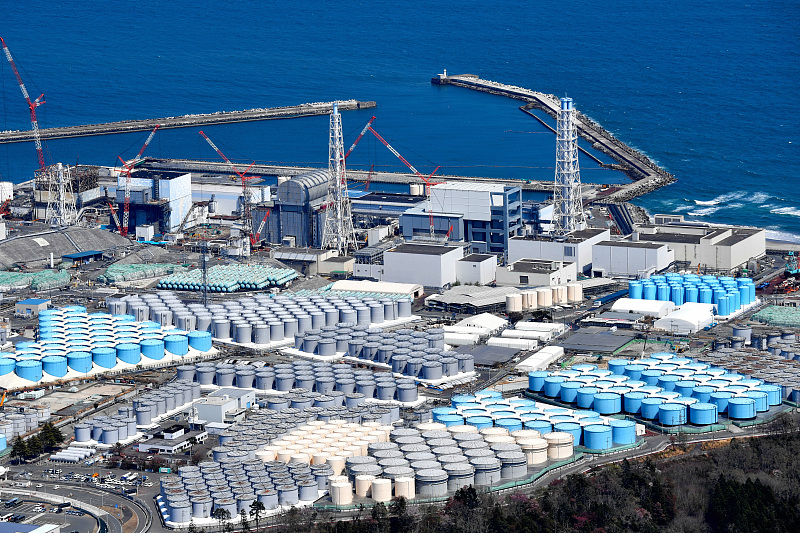
Tanks holding radiation-contaminated water are seen in the premises of Tokyo Electric Power Co's crippled Fukushima Daiichi Nuclear Power Plant, in Okuma, Fukushima, Japan, April 12, 2021. /CFP
Tanks holding radiation-contaminated water are seen in the premises of Tokyo Electric Power Co's crippled Fukushima Daiichi Nuclear Power Plant, in Okuma, Fukushima, Japan, April 12, 2021. /CFP
The president of the Pacific island state of Micronesia denounced at the United Nations on Thursday Japan's decision to discharge what he called nuclear-contaminated water from the Fukushima Daiichi Nuclear Power Station into the Pacific Ocean.
In an address to the UN General Assembly in New York, David Panuelo said Micronesia had the "gravest concern" about Japan's decision to release the so-called Advanced Liquid Processing System (ALPS) water into the ocean.
"We cannot close our eyes to the unimaginable threats of nuclear contamination, marine pollution, and eventual destruction of the Blue Pacific Continent," he said.
"The impacts of this decision are both transboundary and intergenerational in nature. As Micronesia's head of state, I cannot allow for the destruction of our ocean resources that support the livelihood of our people."
Japan said in July that its nuclear regulators had approved a plan to release into the Pacific Ocean water used to cool reactors in the aftermath of the March 2011 Fukushima disaster.
The water has been stored in huge tanks in the plant, and amounted to more than 1.3 million tonnes by July.
Japan's Foreign Ministry said at that time that regulators deemed it safe to release the water, which will still contain traces of the radioactive isotope tritium after treatment.
The plan has encountered stiff resistance from regional fishing unions which fear its impact on their livelihoods. Fukushima residents protested against the Japanese government's plan while surrounding countries and regions of Japan have also voiced concern.
(With input from Reuters)

